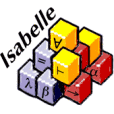Unlocking New Possibilities: Top F* Alternatives for Program Verification
F* (pronounced F star) is a powerful ML-like functional programming language renowned for its focus on program verification. Its advanced type system, incorporating features like dependent types, monadic effects, and refinement types, empowers developers to express precise and compact program specifications. While F* excels at proving program correctness through a combination of SMT solving and manual proofs, and can be translated to OCaml or F# for execution, it might not be the ideal fit for every project or team. This article explores some of the best F* alternative options available, catering to various needs in functional programming and formal verification.
Top F* Alternatives
Whether you're seeking a more general-purpose functional language, a dedicated proof assistant, or something with a different approach to dependent types, there's an F* alternative that could be perfect for your next venture. Dive into our curated list to find the best fit for your verification and development needs.

F# (programming language)
F# is a succinct, expressive, and efficient functional and object-oriented language for .NET. It's an excellent F* alternative for those looking for a versatile language that blends functional and object-oriented paradigms. As a free, open-source language available on Mac, Windows, Linux, and BSD, F# helps you write simple code to solve complex problems, serving as both a functional and object-oriented language, and a scripting language.

Isabelle
Isabelle is a powerful proof assistant designed for writing and checking mathematical proofs by computer. For users of F* who are primarily interested in rigorous formal verification and mathematical proof, Isabelle offers a robust, free, and open-source platform available on Mac, Windows, and Linux. It allows mathematical formulas to be expressed in a formal language and rigorously checked.

Coq
Coq is another prominent proof assistant that allows users to write mathematical proofs in a rigorous and formal way, with computer verification for correctness. Similar to F* in its formal verification capabilities, Coq is a free and open-source solution accessible on Mac, Windows, and Linux, making it a strong contender for those deeply involved in formal methods and proof checking.

Agda
Agda is a dependently typed functional programming language, making it a very close F* alternative for those who appreciate the power of dependent types for program specification. It features inductive families, allowing for data types that depend on values, such as vectors of a given length. Agda is free, open-source, and runs on Mac, Windows, and Linux, offering a similar level of expressiveness for formalizing program properties.

OCaml
OCaml is an industrial-strength programming language supporting functional, imperative, and object-oriented styles. Given that F* programs can be translated to OCaml for execution, OCaml stands as a natural F* alternative, especially for those seeking a robust, high-performance functional language. It is free, open-source, and available on Mac, Windows, Linux, and BSD, providing a flexible environment for various programming paradigms.
Ultimately, the best F* alternative for you will depend on your specific project requirements, team expertise, and desired level of formal verification. We encourage you to explore these options further to find the language or tool that best empowers you to build robust and reliable software.